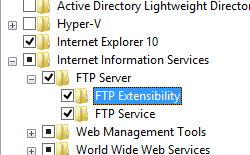
The domain certificate is the least expensive type of SSL certificate. It is also issued quickly, usually within minutes. It is ideal for websites which do not deal with sensitive information. It is less rigorous than Organization Validated (OV) and Extended Validated (EV) certificates, which can be acquired by malicious bots.
Domain Certification
The domain must be owned by you. The CA verifies this by checking WHOIS for the domain. They may also provide a validation file which is placed on the web server. This will give you security and protect customers.
DCV Verification Methods
The most popular way to validate a domain is via e-mail. Comodo's e-mail will contain a unique verification code, and a link that takes the user to a page of their website for verification. The domain's owner will receive an email containing a unique validation code and a link to a verification page on their website.
DNSimple is a great tool to check WHOIS records of domains. It's free. This will let you know what email address is associated with your domain. It will also allow you to confirm that email when you submit a CSR.

DV SSL Multi-Domain certificates
If you want to protect several domains, a DV certificate with multiple domains is a good option. It allows you to protect both internal and subdomains/domains externally under one installation with a single period of renewal.
Domain Registrar's Information
The CA will verify the domain owner directly by checking the domain registry information. To avoid the CA rejecting the certificate, it is crucial that the information of the domain registrar is public.
You can enable this option by clicking the "Upload A File" button in the final step of SSL activation. The Certificate Authority checks this file and sub-folders in your server to issue a DV SSL Certificate.
This process could take a long time, particularly if you are ordering a large number of FQDNs. Make sure you've added all FQDNs in the order before you continue.
Domain Authentication
A WHOIS lookup will be performed by the CA to verify that the domain was registered under the name of the person/company who submitted SSL application. They can also send an email verification to the admin for the domain, or create a DNS entry to verify control.

Domain Authentication has a range of uses, from small businesses to large enterprises. This is a great option for businesses that don't handle sensitive data. It doesn't require any background checks on the business or verification of personal identity.
You will need to provide your CSR and proof of identification to the CA in order to obtain a Domain Validation Certificate. The WHOIS record can provide the contact information and domain ownership details for a particular domain. Documents and company details are also acceptable. If you have any questions or need help with generating your CSR, our support team will be happy to assist you.
FAQ
How Much Does it Cost to Create an Ecommerce Website?
This depends on your platform and whether you hire a freelancer or go through a service provider. The average eCommerce site starts at $1,000.
Once you have chosen a platform, expect to pay between $500 and $10,000.
If you're planning on using a template, you probably won't pay more than $5,000. This includes any customization you need to make to fit your brand.
Do I hire a web design firm or do it myself.
Don't pay for web design services if you want to save money. If you need high quality results, it may not be worthwhile to hire someone else to build your website.
You don't need to hire expensive web designers to create websites.
If you're willing, you can learn how you can make a site that is beautiful using free tools like Dreamweaver.
You might also consider outsourcing your project to an experienced freelance web developer who charges by the hour instead of per-project.
Can I use a framework or template on my website?
Yes! Pre-built templates and frameworks are often used when building websites. These templates include all of the code required to display the information on your webpage.
Some of the most popular templates include:
WordPress - the most widely used CMS
Joomla - Another popular open source CMS
Drupal - A large-scale enterprise solution that large businesses use
Expression Engine – A Yahoo proprietary CMS
You will find hundreds of templates for each platform. So it shouldn't be hard to choose the right one.
What is website design software?
Graphic artists, photographers, illustrators, and writers use website design software to create websites and other digital media.
There are two main types of website design software: desktop applications and cloud-based solutions. Desktop apps can be installed on your local computer. They also require that you install additional software. Cloud-based solutions can be hosted remotely over the internet. They are ideal for mobile users as they don't require additional software.
Desktop Applications
Although desktop apps offer more features than cloud-based applications, they are not always required. Some people prefer to work only from a desktop application because it is more convenient. Some people like the same tool no matter whether they're working on a computer or a smartphone.
Cloud-Based Solutions
Cloud-based services are the best choice for web developers who want to save both time and money. These services allow you to edit any type of document from anywhere that has an internet connection. This allows you to use your tablet while waiting for your coffee maker to brew.
If you decide to go with a cloud-based service, you'll still need to purchase a license for the program. However, additional licenses are not required to upgrade to a newer version.
If you have Photoshop, InDesign and Illustrator, these programs can be used for creating web pages.
What should I include?
These should all be included in your portfolio.
-
Exemplaires of previous work
-
Link to your website (if possible).
-
Your blog may have links
-
Links to social media pages.
-
Other designers' online portfolios can be found here.
-
Any awards you received.
-
References.
-
Take samples of your work.
-
Here are some links that will show you how to communicate with your clients.
-
These links show that you are open to learning new technologies.
-
Here are some links to show you are flexible.
-
You can find links that reflect your personality.
-
Videos showing your skills.
How much does it cost to build a website?
The answer to this question depends on what you want to accomplish with your website. Google Sites is a free service that may be available if you only want to publish information about yourself and your business.
However, if you want to attract visitors to your website, you'll likely want to pay for something more robust.
The most popular solution is to use a Content Management System (like WordPress). These programs allow you to create a website without knowing anything about programming. And because third-party companies host these sites, you won't need to worry about getting hacked.
Another way to build a website is to use a service called Squarespace. Squarespace offers a variety plans that range from $5 per person to $100 per person, depending on what information you want to include.
Statistics
- Is your web design optimized for mobile? Over 50% of internet users browse websites using a mobile device. (wix.com)
- In fact, according to Color Matters, a signature color can boost brand recognition by 80%. There's a lot of psychology behind people's perception of color, so it's important to understand how it's used with your industry. (websitebuilderexpert.com)
- The average website user will read about 20% of the text on any given page, so it's crucial to entice them with an appropriate vibe. (websitebuilderexpert.com)
- It's estimated that in 2022, over 2.14 billion people will purchase goods and services online. (wix.com)
- Did you know videos can boost organic search traffic to your website by 157%? (wix.com)
External Links
How To
What is website Hosting?
Website hosting is the location where people go when they visit websites. There are two types.
-
Shared hosting is the cheapest. Your website files are stored on a server that is owned by another person. Customers who visit your website send their requests via the Internet over to that server. The server owner then forwards the request to you.
-
Dedicated hosting - This is the most expensive option. Your website is hosted entirely on one server. There are no other websites sharing space on the server. Your traffic remains private.
Because shared hosting is more affordable than dedicated hosting, most businesses opt for it. The company hosting the server will provide the resources necessary to manage your website.
However, both have their advantages and disadvantages. Here are the differences:
Sharing Hosting Pros
-
Lower Cost
-
Easy To Set Up
-
Frequent Updates
-
It can be found on many web hosting companies
Shared hosting can often cost as little as $10/month. Remember that shared hosting usually comes with bandwidth. Bandwidth is the data transfer speed that you have over the Internet. So even if you only upload photos to your blog, you may still pay extra money for high amounts of data transferred through your account.
You'll soon realize why your old host cost so much once you get started. Most shared hosts have very poor customer support. While they may occasionally assist you in setting up your site and other tasks, after that you are all on your own.
Look for a provider who offers 24/7 phone support. They will attend to any issues you have while you sleep.
Cons of dedicated hosting
-
More Expensive
-
Fewer Common
-
Requires special skills
With dedicated hosting you will have everything you need to manage your website. You don't need to worry about bandwidth usage or RAM (random access memory).
This means that you'll spend a bit more upfront. Once you get started with your online business, you will find that you don't require much technical support. You'll quickly become an expert at managing your server.
Which is better for my business?
This depends on the kind of website that you want. If you're selling products only, shared hosting might work best. It is easy to set-up and manage. And since you're sharing a server with many other sites, you'll likely receive frequent updates.
However, dedicated hosting is the way to go if you want to build a community around your brand. Instead of worrying about traffic, you can concentrate on building your brand.
If you're looking for a web host that offers both options, we recommend Bluehost.com. They offer unlimited monthly data transfers and 24/7 support. You can also register domain names for free.